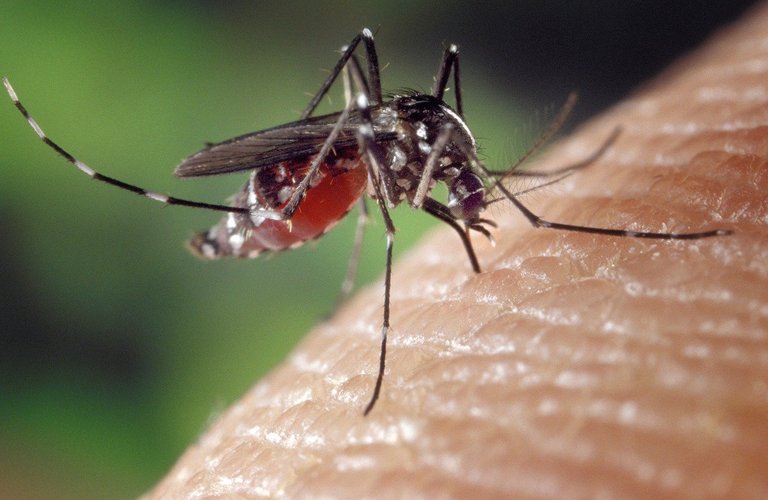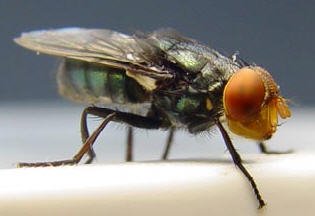Using Genetics to Eradicate Mosquitoes
Hi guys! Mosquitoes are an inescapable part of life in Africa, where malaria is still the most serious threat to the people, and therefore cannot be avoided.

Author - FotoshopTofs; Source: Pixabay
Many of us here in Africa are familiar with the high-pitched buzzing sound made by those ever-hungry mosquitoes that airlift off our bodies, and we are well aware that we will be scratching the bite they have left behind for a long time. The whole event is not only an irritation for everyone, but some kinds of mosquitoes are also a major source of diseases such as Zika, Dengue fever, Malaria, and Yellow fever, to name a few examples.
To keep these mosquitoes at bay, of course we employ insecticides, but more often than not, these chemicals only kill the weaker insects, leaving behind the stronger mosquitoes that are potentially more resistant to these chemicals. Good thing is, non-insecticide techniques of managing mosquito populations are being investigated by a number of researchers.
Female mosquitoes are the only ones that bite and transmit disease, so one of the options that researchers are investigating to control mosquito populations is turning female mosquitoes into males! Put it short, no more female mosquitoes = no more disease.
In humans and other mammals, sex is determined by the presence or absence of sex chromosomes; however, in insects, the situation is more complicated. For certain mosquito species, such as the Aedis aegypti, carrying a Y chromosome does not necessarily imply that the mosquito is a male. However, in this species, a single male-defining gene located on the Y chromosome is responsible for determining the gender of the individual.
The gene in question is known as 'NIX', and it is found in a specific location on the Y chromosome of the mosquito known as the M locus. Scientists have discovered that adding the Nix gene into the chromosomes of female mosquitoes can cause the mosquitoes to transition from being female to male.

Transgenic lines that stably express the Nix transgene:
(A) Plasmid constructs used to create transgenic lines that stably express the Nix transgene.
(B) A schematic drawing showing the insertion sites in the N1 and N2 transgenic lines, respectively.
(C) Chromosomal in situ hybridization using the N1 plasmid as a probe ;
Source
There is currently active research towards genetically engineering female mosquitoes so that they all express an extra copy of the Nix gene, resulting in the production of a viable male mosquito! Because this gene is located on one of the sex chromosomes, the mosquito can then pass the extra copy of the Nix gene on to the offspring that it produces by mating with fertile female mosquitoes in order to produce more fertile male mosquitoes.
In due course, all of the mosquitoes would be born male, and the female mosquitoes would be exterminated off the planet. Without females, there will be no harmful mosquito bites, and soon, there will be no mosquitoes! Diseases transmitted by this species would simply not occur if this species did not exist.
Another method that scientists are attempting to use to eliminate mosquitoes is to simply sterilize them. Researchers are breeding male mosquitoes in laboratories and irradiating them to cause DNA mutations and render them sterile. These are then released into the wild, where females breed with them but are unable to produce offsprings, resulting in a reduction in the mosquito population, which is hoped to be the case.
I was genuinely shocked to find that this eradication strategy has been in use since the 1950s and has proven to be effective time and time again. After being tested on the Mediterranean fruit fly and the New World screwworm fly, it is now being tested on two different types of mosquitoes in Florida and Italy, with promising results so far.

The screw-worm fly was the first pest successfully eliminated from an area through the sterile insect technique.
Author: The Mexican-American Commission for the Eradication of the Screwworm; Public Domain
When done correctly, sterilizing mosquitoes can be an environmentally friendly, cost-effective, and successful means of reducing the natural mosquito population's population. Scientists, on the other hand, are erring on the side of caution since they do not want to unintentionally transmit any unintended consequences of irradiating mosquitoes to the species that the mosquitoes feed on, which includes humans.
In addition, some people are wary of the thought of completely eliminating mosquito populations, due to the fact that every species, including blood-sucking insects, serve an important role in its habitat. Some people may be wary of the idea, and others may support it. There are over 3000 varieties of mosquitoes and because they reproduce so quickly, eliminating all of them would be a significant undertaking.
It would be extremely beneficial for public health if researchers could concentrate their efforts on eradicating the mosquito species that are vectors for human diseases, which represents a small fraction of all mosquito species, as this would significantly reduce public health concerns and deaths from mosquito-transmitted diseases.
But then I sat back and imagined an Africa where there is: no more irritating buzzing mosquitoes, no more itchy swelters from the constant scratching of my nails, no more spraying of insecticides. For me, eliminating the disease-carrying mosquitoes is a win-win situation. What are your thoughts, hivers? I look forward to your comments.
Some Materials from which this work was derived include:
Nix alone is sufficient to convert female Aedes aegypti into fertile males and myo-sex is needed for male flight
Mosquito
Mosquito sterilization offers new opportunity to control chikungunya, dengue, and Zika
Sterile insect technique
Sterile Insect Technique (SIT) and Its Applications
Those are interesting options to get rid of mosquitoes. However, if they are not put in place yet (on a large scale), I imagine that this is for a good reason. Any idea on this?
Cheers!
I feel the scientists are looking to establish the effectiveness of this approach without affecting the biodiversity of this species. Either ways, i wouldn't mind them giving the technique a try in mosquito infested countries here in Africa where the impact of the diseases are mostly felt, just like the studies currently going on in Florida and Italy.
Thanks a bunch for the engagement!
You are correct, and I didn't consider this. Without being certain about the impact on biodiversity, this is a decision hard to take. At the end, the question may be biodiversity (and all the unknown ecological consequences) versus getting rid of few diseases.
Thanks for your contribution to the STEMsocial community. Feel free to join us on discord to get to know the rest of us!
Please consider delegating to the @stemsocial account (85% of the curation rewards are returned).
You may also include @stemsocial as a beneficiary of the rewards of this post to get a stronger support.
But it's just some specific species that are harmful and need eradicating, right? So there will still be plenty of mosquitoes to serve their function in nature?